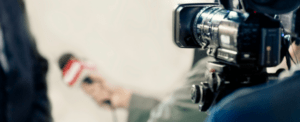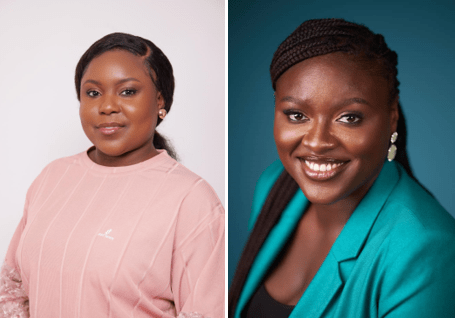By Phoebe PAPPOE and Ruth BAZING
Imagine a well-respected CEO or leader stepping into a live interview, poised to share a groundbreaking initiative that could redefine their industry. With excitement, they articulate their vision, but moments later, a misinterpreted statement sends shockwaves across social media.
What began as a chance to connect with the public quickly spirals into a PR nightmare. This scenario is all too familiar in the fast-paced world of modern media, where a single misstep can overshadow even the best intentions.

As brands navigate this challenging landscape, the importance of strategic media interviews cannot be overstated. Every conversation with the press is an opportunity to humanize your brand, share your story, and build trust. However, without careful planning and an understanding of the critical touchpoints that influence perception, these moments can easily turn into moments of crisis.
By mastering the art of media engagement, brands can transform interviews into powerful platforms for connection while protecting their reputation from potential backlash. Here’s how to effectively navigate these pivotal touchpoints and ensure your message resonates positively with your audience.
A media interview is a positive opportunity, whether planned or catches you off guard in public. You are the focus of the interview and any unique insight or knowledge you share gives you an edge of credibility that can serve your business or personality.
Heard of the quote, “The questions don’t do the damage. Only the answers do” by Sam Donaldson.? This tells you that anything you say during a media interview is what will be reported to represent your brand and business.
Recently, an interview of Ghanaian Gospel musician went viral because she said in the interview that God told her to divorce her husband. This interview was supposed to promote a just ended successful gospel show but instead, the interview rather gave her some bad ‘press’ after a rather ssuccesful show. Successful media interviews are 95% preparation, 5% improvisation.
If you are to emerge successful from media interviews, you need to consider
- Extensive preparation
- A clear idea of what you want to say and how you will say it
- An ability to take control rather than just stick rigidly to the journalist’s line of questioning.
Keep in mind to sound natural, with succinct memorable sound and take control. Additionally, body language is quite important for expressing sincerity and confidence. You may reaffirm your message by keeping eye contact, making open movements, and wearing happy facial expressions. If you have interesting messages or answers you can subtly but confidently move from the journalist’s agenda to your own.
Below are some detailed tips that might be beneficial to you or your organisation to ace your media interviews.
Define your goal & messaging
Defining a goal larger than the interview itself will help you get motivated and stay on track. Your messages should be positive and impactful and should resonate with your audience. You should also consider incorporating diversity and inclusion into your messaging.
Addressing the needs and perspectives of varied audiences can make your brand more relatable and trustworthy. Personal stories or case studies can make your points more engaging and memorable, allowing your audience to connect with your brand on a deeper level.
Anticipate the journalist’s strategy
Every journalist and media house have peculiar interview styles. If you have a planned interview, your PR or communication person assist you with a brief about the journalist, media house or the particular show.
It’s also essential to tailor your approach based on the medium—be it television, radio, or print. Each platform has its nuances, and understanding these can enhance your effectiveness. Watch excerpts of interviews with the journalist or the media house to build your confidence.
Be culturally sensitive
You cannot be ton-deaf in these contemporary times. Be aware of cultural differences that may influence the interview dynamics. Understanding local customs and values can help you communicate more effectively and resonate with your audience.
Think before you speak
Journalists work on the basis that anything you say can be reported – so it’s up to you to set the rules! However, when it comes to “Off the Record” – journalists won’t always abide by this rule! If you don’t want it reported – don’t say it! However, for maximum impact, prepare memorable sound bites; concise, impactful statements that encapsulate your key messages. These are often quoted in media coverage, so having them ready can maximize your impact.
Cover your agenda
Preparation is essential, and this must include an understanding of why the interview is taking place, so you should ask the journalist a couple of questions before the interview. Make sure you’re succinct and detailed when given the opportunity to talk about your organisation or personality. This is your opportunity to tell the brand experience to stakeholders.
Never lose your cool
If the interview is not going your way, it’s crucial to remain calm. Do not take anything personal, no matter how hard a reporter might try to poke you into answering uncomfortable questions or lead the conversation in a direction that will provoke you into giving newsworthy sound bites- remember you’re always on-record. Strategies such as acknowledging concerns, staying factual, and redirecting the conversation to key messages can help maintain you or your brand’s integrity.
Be on time
If your interview is either in a studio or virtual, you need to be there on time, this gives you an opportunity to familiarize yourself with the journalist or presenter and other crew members, it also provides and opportunity to have relevant discussions that will guide your conversation.
Emphasise your key message at the end
Take advantage of the frequently asked “Is there anything else you’d like to add?” question at the end of an interview to emphasize your key messages. People pay keen attention to the beginning and end of every conversation or interview. After the interview, if an error is made, consider whether it would be wise to ask for a correction if it wasn’t live. If it was, you can issue a statement to the media house for correction, and they will be glad to help.
Practice effective post interview actions
Post-interview actions are equally important. Following up with the journalist to express gratitude and sharing the published content can help strengthen relationships. If the interview sparks discussion online, engage with comments and questions from your audience. This can help reinforce your message and build community. Sharing clips or key takeaways on your channel(s) can reach a wider audience and create further engagement with your organisation or brand.
Conclusion
In summary, mastering media interviews is crucial for any brand looking to make an impact. Take these tips to heart, practice regularly, and seize every opportunity to share your story.
>>>Phoebe Pappoe is a Communications and PR Consultant with a decade of experience in public relations and corporate communications. Currently practicing in the UK, she also offers consultancy services in Ghana. Phoebe holds a Masters in Brands and Communications Management and a Professional Certificate in Strategic Leadership from the London School of Business Administration.
>>>Ruth Bazing, a Public Relations and Journalism lecturer, holds an MPhil in Communication and Media Studies and teaches at Academic City University College and University for Professional Studies in Accra.










